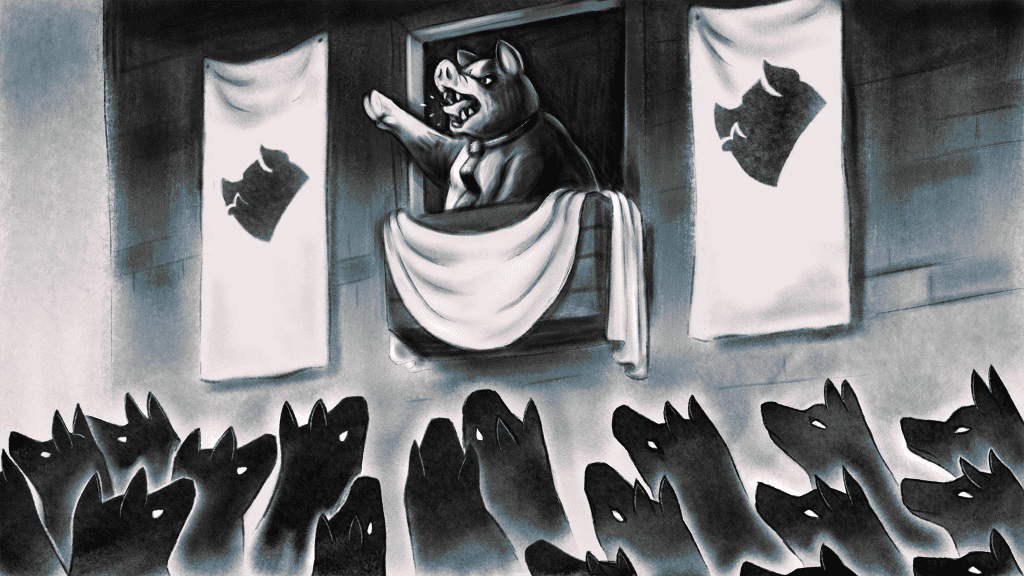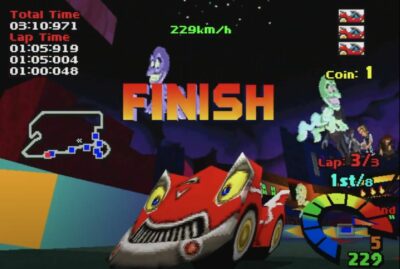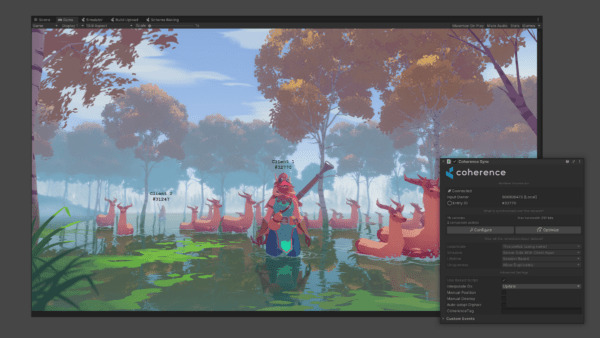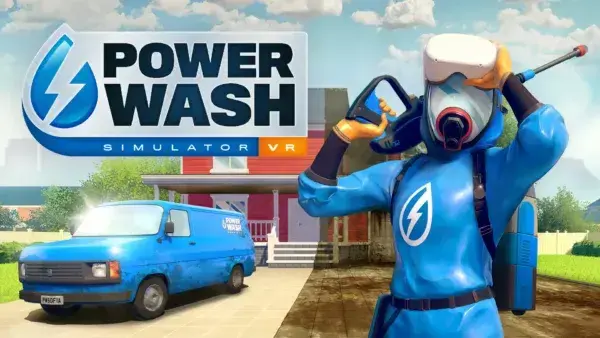
It’s hard to think of many game developers who have harboured ambitions of turning a respected novella – an allegory for the Russian Revolution of 1917, no less – into a video game. But then there aren’t too many developers quite like Imre Jele.
By day, Jele’s energies are channelled into his work as chief creative officer at Bossa Studios, which he co-founded in 2010. “I make funny games”, he grins, underselling the impact of hits such as the Surgeon Simulator series. But as he also freely admits, “I feel like my head is clogged up with ideas.”
As part of that de-clogging process, Jele wrote down all the game ideas he had in mind. Then he split them into three lists: list one was for games he felt he must do, list two the ones he really liked the idea of, and the third was for those to be put on the back burner. “I took all three pieces of paper, and set the second and third lists on fire,” he tells me. I believe him.
Scrawled on the first piece of paper was ‘Animal Farm’.
Down on the farm
Written by George Orwell, Animal Farm was first published in 1945. Billed as a fairy story, the novella tells the story of Manor Farm and how the animals overthrow the humans running it. Key instigators of the revolution are two young pigs by the name of Snowball and Napoleon, and the novel explores how the new regime becomes just as troubling as the one that preceded it.
What Orwell was doing, though, was writing arguably his most politically charged book – and remember, he authored 1984, too – in the guise of an animal fable. Napoleon is the stand-in for Joseph Stalin, while other characters are analogues of Karl Marx, Vladamir Lenin, and Leon Trotsky. The story is an allegory for totalitarianism and, to this day, there are parts of the world where it’s banned in schools.
When Jele first read the book, he was living in his native Hungary. “I have memories of reading it really young – I must have been seven, eight, nine,” he recalls. “But I looked it up when I first seriously started pursuing this project and I thought my memory must be wrong, because the book wasn’t published [when I was that old]. It was still banned in Hungary.”
Yet his memory wasn’t at fault. It turned out his grandparents had got hold of an illegal copy of the book and read it to their grandson. Jele lived most of his childhood through the end of the communist regime in Hungary, and still “experiencing some of the extremes of oppression”. It all left an indelible mark on him, which he’s now channelled into a game.
 1_.png” alt=”” width=”1920″ height=”1080″ />
1_.png” alt=”” width=”1920″ height=”1080″ />Periphery characters from the book, such as the birds, will have an extended role in the game.
Orwell and good
In August 2020, then, Jele’s studio announced that its adaptation, Orwell’s Animal Farm, was on the way. The reaction, not unreasonably, was surprise – some asked how it was possible to make a game out of Animal Farm. Others asked whether anyone should try to make a game of it. The Guardian, helpfully, weighed in with one of its tongue-in-cheek Pass Notes columns, chortling at the idea as to what the DLC might contain.
In truth, though, Jele – and the small team of independent developers who came together to make the game – had struggled with how to capture the book for many years before. There were, he says, several false starts before they got the game right.
“We had long discussions about who are you as the player,” Jele recalls. “We had a version of the game where you were playing as Napoleon or as Snowball, one of the ruling pigs. That was a great version, actually. But what we found was that we ended up apologising for oppression.”
It was a red flag. “That wasn’t the message that Orwell was trying to say, nor what we wanted to say,” Jele argues. Then they experimented with having you play a mid-ranking pig in the farm, amongst three or four further prototype approaches they experimented with.
 2_.png” alt=”” width=”1920″ height=”1080″ />
2_.png” alt=”” width=”1920″ height=”1080″ />The storybook-feel visuals are part of the drive to make the story as accessible as possible.
In the end, it was writer Emily Short who had the eureka moment. “When she joined, she said look, in the book, you can identify with the characters, but really, there is no lead character… the lead character really is the narrator.
“It’s a movie path story, she said, and you’re choosing which story to listen to.”
Permissions
The resulting adventure game – laced with a hint of resource management – stemmed from there. What’s more, the team got permission from the Orwell Estate to extend the narrative beyond the novel’s scope – useful, given that Animal Farm is a short book. An example: in the text, the birds are used to spy on neighbouring farms. But the game also introduces the idea that the pigs would also use the birds to spy on their own animals.
“It makes sense in that Orwellian universe – and it’s reflected in the book 1984 – that someone is always watching you,” says Jele. It’s an intelligent extension of the book, and in turn, adds an extra dimension to the game’s narrative.
 3_.png” alt=”” width=”1920″ height=”1080″ />
3_.png” alt=”” width=”1920″ height=”1080″ />Yeah. If you don’t know the book, things sometimes take, er, ‘a bit of a turn’.
This level of collaboration between developer and author’s estate was a far cry from the very beginning of the project, when Jele attempted to get permission to use the Animal Farm rights and was instantly turned down. “I sent them an email that was heartfelt, and honestly, [the rejection] was a tear-shedding moment,” he recalls. The estate’s reply arrived within two hours and simply read, ‘rights not available, kind regards’.
Fortunately, Jele wasn’t deterred. He got in touch with those who’d secured the rights to the novel before – film company The Imaginarium, for instance, which is working on a new movie adaptation to be directed by Andy Serkis. He then used the contacts he made to secure an introduction to Bill Hamilton at the Orwell Estate.
Although it still took “a long time” to get the estate to sign off on the project, a deal was finally made. In the end, the flexibility the Orwell Estate offered was crucial. The game now gives you choices the book, of course, can’t. Which animal do you listen to? What story path do you want to follow? What do you think is the morally right choice? The guiding ethos was to make a game that – as odd as it may sound – Orwell would design if he were alive.
Orwell’s Animal Farm may be the first video game adapted from the book, but it builds on the visuals of adaptations in other media. You can count Imre Jele as a fan of Folio Society books, and during our conversation, he reaches onto the shelf behind him to show off the sublime art in the pages of its deluxe Animal Farm edition. “I might as well give them a direct debit,” he chuckles as he flips through the pages.
 5_.png” alt=”” width=”1920″ height=”1080″ />
5_.png” alt=”” width=”1920″ height=”1080″ />On the surface, there’s the look of a fairly traditional adventure game.
Jele talks with enthusiasm about the British animated adaptation from 1954, and of a recent graphic novel version based on the material. But he always brings things back to the accessibility of the original novel: “The book is one I could read as an eight-year-old and get something out of it, and read in my 40s and get something out of it.” That accessibility and broad appeal is, he says, the heart of the game and its look. “I would love if this game was an entry point for someone into Orwell’s work … or for a young person to start thinking about politics and governance in a critical kind of way.
“You might say that I’m being entitled and dreaming too big,” he smiles, “but we want to make a game where we can talk to a lot of people in an emotive way, which hopefully is going to kickstart their own thinking. What do they think went wrong with the farm? What do they think is going wrong with modern governance?”
Timing
As I chat to Jele, the game is on the home stretch and due out this November. The timing might seem uncanny: it coincides with the US presidential election due that same month. But according to Jele, it’s merely a coincidence. “I don’t think a single election in the United States, no matter who wins, is going to wipe out the discourse about oppression,” he reasons.
Orwell’s Animal Farm is a quietly ambitious project – and Jele isn’t finished yet. While he’s focused on making Animal Farm, more projects are bubbling away in his head. He won’t be drawn on specifics, but I did ask: do any of these projects involve negotiating with anyone’s estate again? “I can’t confirm or deny that,” he grins.
Orwell’s Animal Farm is due for release in November for PC and mobile.





